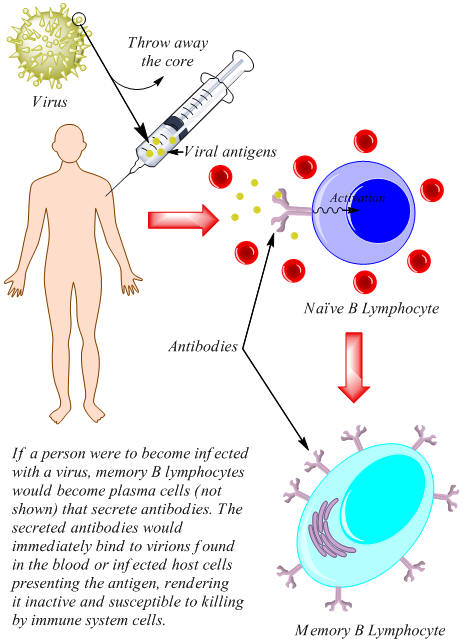Hepatitis B VirusContents Risks & Prevention: The only way to cure or protect oneself from a viral infection is to be born with a strong immune system that responds quickly to infection or be vaccinated prior to infection, respectively. A vaccine simply increases the immune systems arsenal against future foreign invaders by allowing the body to produce antibodies against viral antigens prior to infection, rather than having the body go through a rigorous process to produce antibodies at the initial time of infection (Figure 4). Figure 4. A highly simplified illustration depicting the effects of immunization. Vaccination allows the recipient to become sensitized to the viral antigen, so that when a real virus enters the host, it is rendered inactive by memory B cells that can immediately detect the pathogen and induce an immune response. To prevent infection in newborns, and people of all ages, receiving the vaccine is highly recommended. All newborns receive the vaccine at birth, and receive the second and third dose by their second birthday. The vaccine is a combination vaccine using Saccharomyces cerevisiae (yeast) with a plasmid containing the HBsAg antigen and has been available since the early-1980s. Once a person has been vaccinated, there is no need for a booster, and 98 to 100% of people vaccinated show immunity.
|


